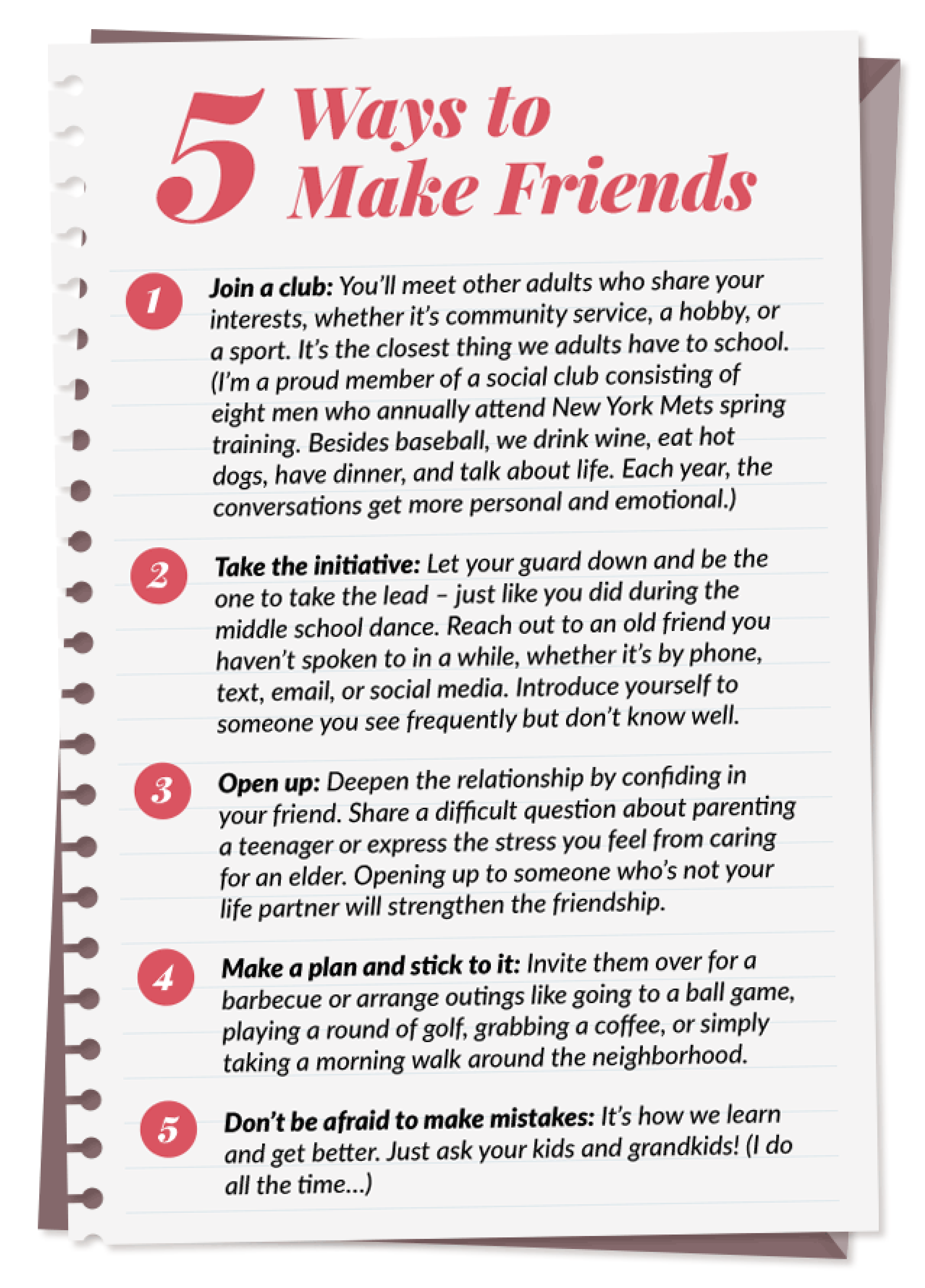Rediscovering the Power of Friendship at Any Age
Meaningful adult friendships enrich our lives, make us healthier, and are key to longevity.
Jul 14, 2024
Written by our Founder and CEO, our Celebrations Pulse Sunday Letters aim to engage with our community. From sharing stories to welcoming your ideas, we want to help you to express, connect, and celebrate the important people in your life.
As I watch my grandchildren grow, I can’t help but notice how quickly they make friends. They’re not afraid to start conversations with other kids or join a playground game already in progress. They’re curious, ask questions, and eagerly share their opinions.
My seven grandkids, ages three to 15, are unburdened by the fears and reservations that come with growing up. Like most children, they may not understand that making mistakes like social gaffes is part of learning so they just “go for it” without thinking of the consequences.
Adults, however, often fear making mistakes, which can trigger many emotions, including the urge to shut down. We also tend to dread conversations with strangers (unless it's under the cloak of online anonymity). Unsurprisingly, we find ourselves in the midst of a loneliness epidemic.
Perhaps adults can learn something from children when it comes to making and keeping friends.
Why social connections matter at every age
Friendship is a significant issue for both children and adults. Numerous studies show that the number of social connections we have as adults is correlated with our happiness, health, and longevity. Want to improve your life? Look to your friends.
During young adulthood, people find it easier to make and keep friends. School, playing sports, and dating rituals are all social activities. However, once you settle down and start a family, those opportunities begin to shrink. Work and the families of your kids' friends become the dominant friendship enablers.

Those connection opportunities may continue to diminish over time, too. As your kids grow older, they’re less likely to include Mom and Dad in their social activities. Even work – thanks to the pandemic and lingering virtual offices – provides fewer friendship opportunities.
You might think your family is a suitable replacement for friends. Not so, according to Dr. Jan Yager, author of a dozen books on friendship, including most recently Celebrating Friends & Friendship. She's also an adjunct associate professor in the sociology department at New York’s John Jay College of Criminal Justice.
“Friends are pivotal, even if you’re the happiest married couple on earth. As a part of life, one spouse is going to pass on first, sadly, and you become single again. The same thing applies to divorce.
“It’s great to hang out with your children or grandchildren, but it's a very different kind of interaction. It isn’t the same as getting together with a girlfriend or buddies for a movie or a cup of coffee, or two couples getting together for dinner and talking about their shared concerns.”
Dr. Yager reminded me that friends are beneficial, especially late in life. “It helps cut down on depression and loneliness. Having friends really does improve your quality of life.”
It's never too late to make friends
A 2021 survey shows that about 12% of adult Americans report having no close friends, a number that was just 3% 30 years ago. It’s even worse for certain – and very large – subsets of the population, especially men and senior citizens.
If you find yourself lacking friends, it’s not too late to turn things around, no matter how old you are. All it takes is a return to the mindset we had as children. Here are some ideas:

Dr. George Everly, my friend and a psychologist at Johns Hopkins School of Medicine, perfectly sums up the strategy for building and maintaining friendships: “Nurture the relationships you have, rekindle the relationships you’ve lost, and create the relationships you wish you had.”
It’s a great way to think about the challenge of befriending others. All it takes is overcoming that voice in your head that says, “Oh, it’s been too long” or “Why would they want to be friends with me?”
Ignore that voice and give it a shot. I’m willing to bet that the person on the other end would be delighted to get to know you.
All the best,
Jim







